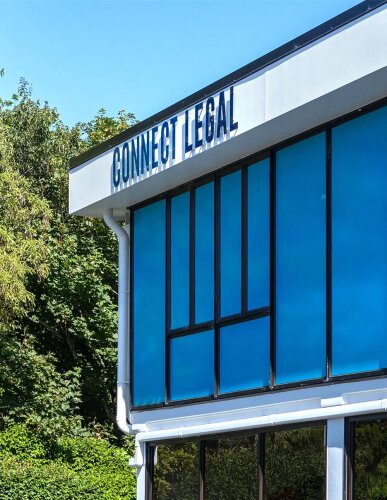Best ADR Mediation & Arbitration Lawyers in New Zealand
Share your needs with us, get contacted by law firms.
Free. Takes 2 min.
Or refine your search by selecting a city:
List of the best lawyers in New Zealand
About ADR Mediation & Arbitration Law in New Zealand
Alternative Dispute Resolution (ADR) encompasses methods such as mediation and arbitration, which serve as alternatives to traditional court proceedings. In New Zealand, ADR is an integral aspect of the legal system designed to facilitate efficient and amicable resolutions to disputes. Mediation involves a neutral third party assisting the disputing parties in reaching a voluntary agreement. Conversely, arbitration involves a neutral arbitrator making a binding decision based on the evidence and arguments presented. The increased use and recognition of ADR in New Zealand reflect both its efficacy in dispute resolution and its alignment with the values of the judicial system.
Why You May Need a Lawyer
There are several circumstances where seeking legal assistance in ADR mediation and arbitration might be beneficial:
- Complex Disputes: If a dispute involves complex legal, commercial, or technical issues, a lawyer can help navigate the intricacies of the case.
- Preparation for Proceedings: A lawyer can prepare documentation and strategies, enhancing the prospects of a favorable outcome in mediation or arbitration.
- Understanding Legal Rights and Obligations: Legal counsel can clarify parties’ rights and obligations, ensuring informed decision-making.
- Enforcement of Awards: In the event of an arbitration award, a lawyer can assist in enforcement or challenge the decision if necessary.
- Contractual Disputes: Lawyers can assist with disputes arising under contracts that mandate mediation and arbitration before court action.
Local Laws Overview
New Zealand’s legal framework supports and governs ADR through various acts and regulations:
- Arbitration Act 1996: This act governs arbitration proceedings, aligning closely with international standards set by the UNCITRAL Model Law.
- Mediation: While not as extensively legislated as arbitration, mediation is widely supported by judicial encouragement and sector-specific guidelines.
- Commercial Dispute Resolution: Some industries require mandatory ADR processes as per their regulatory frameworks, exemplified by disputes in construction or employment.
- Judicial Recognition: There is court recognition of ADR agreements, which underscores New Zealand’s legal backing of alternative dispute mechanisms.
Frequently Asked Questions
What is ADR?
ADR, or Alternative Dispute Resolution, refers to methods, such as mediation and arbitration, used to resolve disputes outside traditional courtroom litigation.
How does mediation differ from arbitration?
Mediation is a facilitative process aimed at helping parties find a mutual resolution, while arbitration is more formal, resembling a court process where an arbitrator makes a binding decision.
Is an arbitrator’s decision final?
Yes, an arbitrator’s decision, known as an award, is usually binding and enforceable in court, similar to a court judgment.
Do I need a lawyer for mediation?
While not mandatory, having a lawyer can be beneficial to understand your legal rights and to guide you through the mediation process effectively.
Can ADR be used for any type of dispute?
ADR can be used for most civil disputes, especially in commercial, employment, and family law cases, but may not be suitable for all situations like serious criminal cases.
What if I’m unsatisfied with an arbitration outcome?
Challenging an arbitration award is limited to specific circumstances such as bias or procedural irregularities under the Arbitration Act 1996.
How long does ADR take in New Zealand?
ADR generally offers a faster resolution compared to the court system, but the duration can vary based on the case complexity and the parties’ willingness to negotiate.
Is ADR confidential?
Yes, ADR processes are typically private and confidential, which allows parties to openly negotiate without public scrutiny.
How much does ADR cost in New Zealand?
Costs can vary widely based on the complexity of the case, the chosen ADR method, and the professionals involved. It is generally less expensive than litigation.
Can ADR decisions be enforced internationally?
Yes, particularly in arbitration, where international agreements like the New York Convention facilitate enforcement of awards across borders.
Additional Resources
If you are seeking more information or need assistance with ADR in New Zealand, consider reaching out to:
- Ministry of Justice: Provides resources and guidelines on ADR processes.
- The Arbitrators’ and Mediators’ Institute of New Zealand (AMINZ): Offers professional resources, training, and a directory of accredited practitioners.
- Community Law Centres: Provide free legal advice and assistance throughout New Zealand.
Next Steps
If you feel that you require legal assistance in ADR mediation and arbitration, consider taking these next steps:
- Identify your specific needs and try to gather all relevant documentation and details about your dispute.
- Schedule a consultation with a lawyer specializing in ADR to discuss your case.
- Consider reaching out to professional bodies like AMINZ for referrals to accredited mediators or arbitrators.
- Prepare for your consultation by making a list of questions and concerns specific to your situation.
By following these steps, you can effectively navigate the ADR process and work towards a satisfactory resolution.
Lawzana helps you find the best lawyers and law firms in New Zealand through a curated and pre-screened list of qualified legal professionals. Our platform offers rankings and detailed profiles of attorneys and law firms, allowing you to compare based on practice areas, including ADR Mediation & Arbitration , experience, and client feedback.
Each profile includes a description of the firm's areas of practice, client reviews, team members and partners, year of establishment, spoken languages, office locations, contact information, social media presence, and any published articles or resources. Most firms on our platform speak English and are experienced in both local and international legal matters.
Get a quote from top-rated law firms in New Zealand — quickly, securely, and without unnecessary hassle.
Disclaimer:
The information provided on this page is for general informational purposes only and does not constitute legal advice. While we strive to ensure the accuracy and relevance of the content, legal information may change over time, and interpretations of the law can vary. You should always consult with a qualified legal professional for advice specific to your situation.
We disclaim all liability for actions taken or not taken based on the content of this page. If you believe any information is incorrect or outdated, please contact us, and we will review and update it where appropriate.
Browse adr mediation & arbitration law firms by city in New Zealand
Refine your search by selecting a city.

















